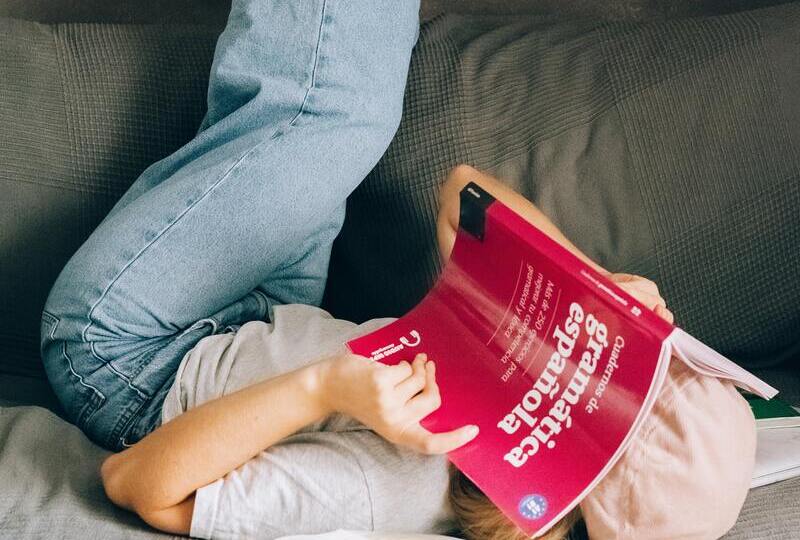How and When to Use the Conditional Tense in Spanish

Learning a new language is an exciting journey filled with twists and turns, especially when it comes to grammar. If you’ve made it to the conditional tense, you have likely had your share of battles with Spanish grammar and know this all too well. When it comes to mastering Spanish, understanding these advanced grammar techniques is essential. Together, we’ll take a look at the conditional tense in Spanish. It is used for expressing hypothetical situations and can make your Spanish sound more refined. If you’re ready to take your Spanish skills to the next level, read on!

What is the Conditional Tense?
The conditional tense is a verbal tense used to express actions or events that are hypothetical, or not guaranteed to occur. We use the conditional tense in English for the same purposes. Let’s see what it looks like in both languages.
In English, we use the conditional tense with phrases like “would,” “could,” or “might”. An example sentence is, “I would visit Spain if I had the chance.” In Spanish, we can write this exact sentence the same way, and it will express the same idea as the English “would” or “could”. In Spanish, this sentence is written, ”Yo visitaría España si tuviera la oportunidad.”
Sometimes it can look similar to the imperfect tense in Spanish that expresses habitual actions that happened in the past. For example, Every day, I would go to my grandmother’s house. The difference here is that with the conditional tense, these actions have not happened. Compare that to the sentence I would go to my grandmother’s house if she lived nearby. In the imperfect tense, the action has happened while in the conditional, the action hasn’t happened and may never happen.

When to Use the Conditional Tense
The conditional tense serves various purposes in Spanish, as it does in English. It is used for the following:
-Hypothetical situations: It is used to talk about events or actions that may or may not occur. For example, ”If I won the lottery, I would travel the world” (Si ganara la lotería, viajaría por el mundo.)
-Polite Requests or Offers: The conditional tense can be employed in Spanish to make polite requests or offers, as is the example in the sentence “Would you please pass the salt?” (Podrías pasarme la sal?”)
-Describing Future Actions with Uncertainty: When discussing future actions with an element of uncertainty, the conditional tense may be used. An example sentence would be ”He said he would call you tomorrow” (Dijo que te llamaría mañana).
-Indicating What You Would Do: To express what you would do in a particular situation if it were happening to you, you should use the conditional. An example sentence is I would help if I could” (Yo ayudaría si pudiera).
-Softening Statements or Giving Advice: Similar to the last one, when offering advice or softening statements, the conditional is helpful. As an example, look at this sentence. ”You should try the paella” (Deberías probar la paella).

How to Use the Conditional Tense
Conjugating a verb in Spanish happens when we take off the final -AR, -ER, or -IR of a verb and replace it with an ending that corresponds with the subject completing an action. As with any other verbs, conditional verbs must be conjugated in Spanish, though the process is a little different. Conjugating verbs in the conditional tense, luckily, is quite straightforward. For regular verbs in the conditional, you need to take the infinitive of the verb and add your ending. Instead of dropping the -AR, -ER, or -IR, the new ending is added after it. Here’s a chart of the endings by subject.
| Pronoun | Ending |
|---|---|
| Yo | -ía |
| Tú | -ías |
| Él / Ella / Usted | -ía |
| Nosotros | -íamos |
| Vosotros | -íais |
| Ellos / Ellas / Ustedes | -ían |
Here are a few examples for you to get a better idea of what the conditional looks like in action:
-Hablar (to speak): Yo hablaría con ella. (I would speak with her.)
-Comer (to eat): Tú comerías la cena. (You would eat the dinner.)
-Vivir (to live): Él viviría allí. (He would live there.)
For irregular verbs, the conditional tense may have unique stems. The stem of the verb is the part before the -AR, -ER, or -IR ending. Here are some examples of verbs that have changes in their stems in the conditional tense:
-Decir (to say): Nosotros diríamos la versed. (We would tell the truth.)
-Tener (to have): Ella tendría un vaso de agua. (She would have a glass of water.)
-Hacer (to do/to make): Él haría la cama. (He would make the bed.)

Practice the Conditional Tense in Spanish
Now let’s put your knowledge to the test! Try conjugating the following verbs in the conditional tense. Careful! Some of them are irregular. Try forming a sentence with them if you can. The answers will be in the next section.
- Hablar (nosotros)
- Comer (ellos)
- Vivir (tú)
- Trabajar (yo)
- Beber (ella)
- Tener (vosotros)
- Cantar (usted)
- Bailar (nosotros)
- Poder (tú)
- Decir (yo)
- Pintar (ella)
- Hacer (nosotros)
- Escribir (yo)
- Salir (tú)
- Aprender (ellos)

Answers to the Conditional Practice
How did you do? Here are the answers to the conjugation problems and some example sentences that you could have written. Please note that while some of these look like the imperfect past tense, none of these actions have happened. They are hypothetical.
- Hablar (nosotros) - Hablaríamos - Nosotros hablaríamos más despacio. (We would speak more slowly.)
- Comer (ellos) - Comerían - Ellos comerían en la cafetería. (They would eat in the cafeteria.)
- Vivir (tú) - Vivirías - Tú vivirías en España si tuvieras la oportunidad. (You would live in Spain if you had the chance.)
- Trabajar (yo) - Trabajaría - Yo trabajaría en esa escuela. (I would work in that school.)
- Beber (ella) - Bebería - Ella bebería agua durante la cena. (She would drink water during dinner.)
- Tener (vosotros) - Tendríais - Vosotros tendríais que hacer la tarea. (Y’all would have to do the homework.)
- Cantar (usted) - Cantaría - Usted cantaría durante la misa. (You would sing during mass.)
- Bailar (nosotros) - Bailaríamos Nosotros bailaríamos juntos. (We would dance together.)
- Poder (tú) - Podrías - Tú podrías ayudarme. (You could help me.)
- Decir (yo) - Diría - Yo diría la verdad. (I would tell the truth.)
- Pintar (ella) - Pintaría - Ella pintaría el retrato. (She would paint the portrait.)
- Hacer (nosotros) - Haríamos - Nosotros haríamos todo lo posible. (We would do everything possible.)
- Escribir (yo) - Escribiría - Yo escribiría una novela si tuviera más tiempo. (I would write a book if I had more time.)
- Salir (tú) - Saldrías - Tú saldrías a comer si tuvieras más dinero. (You would go out to eat if you had more money.)
- Aprender (ellos) - Aprenderían - Aprenderían chino si pudieran. (They would learn Chinese if they could.)

Keep Practicing the Conditional in Spanish
You made it through the conditional tense in Spanish! In order to become proficient, you should continue practicing. Try using the conditional tense in Spanish during your daily conversations and writing exercises. The more you practice, the more comfortable and confident you will become when you use the conditional tense. This tense can be a powerful tool that you can use to elevate your Spanish and make it sound more refined. Soon enough, you’ll be able to express your ideas about hypothetical situations precisely and with added nuance.